From Palestine with Love
20/01/2021 - 1.00
Martin Weiler
Thanks to some wonderful international co-operation, a wreath has been laid on the grave of a former Exeter City player and World War One casualty in far off Palestine.
Fred Hunt, Exeter born and bred, was always a keen footballer. He played for his local club St Leonards, then St Margaret’s in Topsham and also turned out for Bath City.
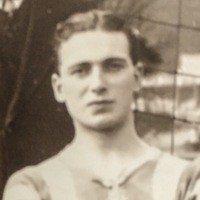
Fred Hunt
A full back, he was a regular member of the Exeter City Reserves team from September 1912 right up until the Autumn of 1914. One local reporter describes him as ‘a very keen and clever soccer footballer, being of fine physique’.
Hunt was an amateur. His paid work was with the sculptor Harry Hems at his Longbrook Street workshop in Exeter.
Fred volunteered for active service soon after the outbreak of the war. In December 1914, along with other members of the football club, including Director Norman Kendall and professional player Alf Green, he sailed to India with the 2/4th Devons.
Later, a sergeant attached to 1/123rd Outram Rifles as a musketry instructor, he took part in actions against Turkish forces, having embarked for Egypt in October 1917.
Only a week before the Armistice, Hunt died of pneumonia in a hospital in Gaza on 4 November, 1918. He was just 28. A local newspaper obituary stated “For several seasons previous to the outbreak of war he was one of the best, and certainly most popular, of the Exeter City Reserve team”.
Fred was buried in Gaza War Cemetery with the inscription on his headstone saying ‘He will always live in the hearts that loved him’.
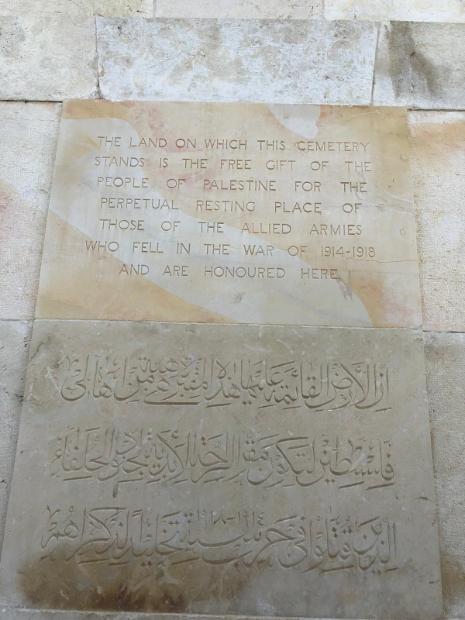
Inscription at Gaza War Cemetery
It had long been a wish of the Exeter City history team to try and honour Fred Hunt as they had done at the graves of their other World War One losses. But distance and access were major challenges.
Then came a breakthrough thanks to an Exeter-Palestinian link in the person of Dr Suaad Genem-George, a member of the Exeter City Supporters Trust’s equality, diversity and inclusion group: One Game One Community.
Suaad was born in Palestine in a small village, Furiedis, near Haifa (now in the state of Israel). After completing her MA at Bologna University in Italy, she returned home to practice law. There she was arrested in 1991 for the third time for political human rights activities. Imprisoned she was deprived of practicing law.
An international campaign by and including by Amnesty International, Action by Christians against Torture and Quakers, campaigned successfully for her release. Not permitted to go back to her legal work Suaad looked for a new start and in October 1993 arrived in Exeter and began her PhD at the University of Exeter the following January . While in prison she had been sent a prospectus and she put this, with its photo of Exeter looking up to the University, in her cell window.
Suaad immersed herself in community life in her new home. She became a local City Councillor for the Alphington ward, a Trustee for the St Sidwell’s Community Centre and Chair and Managing Director of Exeter Respect.
Football also soon became part of Suaad’s life. Her son Wasim, was a talented young player and after joining the Exeter City Football in the Community programme he was enrolled into the club’s School of Excellence. Although he later left to focus on music he continued his involvement as a coach.
Suaad became an active member of the One Game One Community Group and helped organise an annual tournament especially aimed at players from diverse backgrounds.

Suaad Genem-George (centre) at the launch of the annual Exeter City One Game One Community tournament, in 2016. To her left is Ollie Watkins, now of Aston Villa. Ollie was the Club’s OGOC ambassador.
Suaad then took this a stage further by helping set up Open Space International FC in 2012 to give an opportunity for those who wanted the chance to play in the local Devon and Exeter League Division 7. Suaad was Chair of the club and even managed the team for three years. The club has gone from strength to strength and now, playing under the name of Exeter United, operate in Division 2. The team have players who speak at least 15 languages between them including English players who love playing for such an inclusive team.
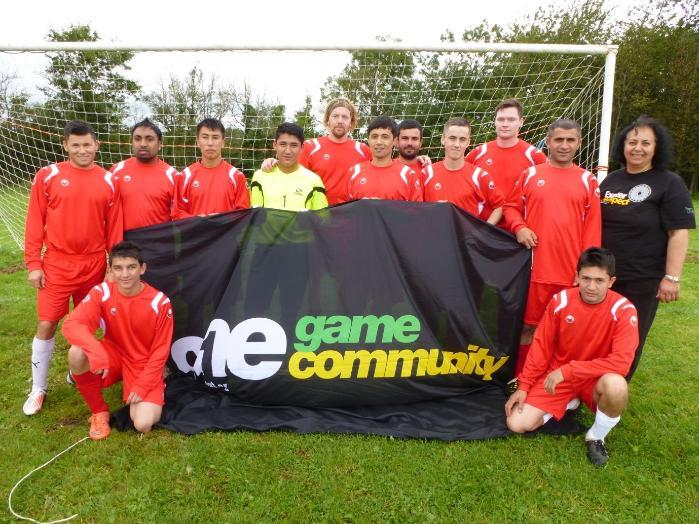
Suaad (far right) with Open Space International FC before their opening League game in 2012.
When Suaad heard that a local player was buried in Gaza and that the Club would like a tribute to be made she went into action. She contacted friends back home who were only too happy to visit Gaza War Cemetery on behalf of Exeter City.
Early in the New Year, the friends arrived at the cemetery beautifully maintained by the Commonwealth War Graves Commission. They laid flowers on the grave together with Olive Tree branches - a symbol of peace, love and harmony. A football was also placed by the grave. Suaad reported that the young boy who brought this wanted to tell Fred Hunt that “I love football as much as you loved it”.
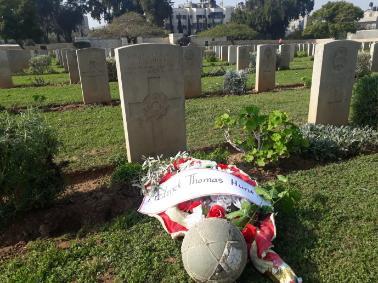
Clearly there are great Palestinian sensitivities around the presence of the British in Gaza during the First World War. But Suaad explained that the grave was visited “…as a gesture of peace for humanitarian reasons, for us as a Football Club and for his parents and family. We honoured his memory. We did it for you and for peace”. It was a really moving act of international friendship and one welcomed by all at Exeter City.
The wreath laying can be seen on this video.
Fred Hunt is remembered on a plaque on the wall of the garden remembrance at St James Park, Exeter City’s home ground. He is also named on a memorial in St Leonard’s Church, Exeter.
Fred Hunt is also honoured on a memorial in Higher Cemetery, Exeter:
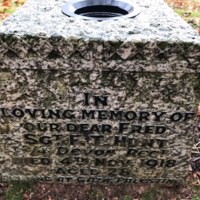
This memorial is included in a trail that looks at former Exeter City players and others of interest in the graveyard. The trail was developed by the Exeter City History and Museum team as part of the Heritage Lottery funded ‘Celebrating our Heritage’ project. The trail can be seen here.
Biography
Brought up in London watching Hounslow Town, Brentford and Spurs, Martin studied History and Archaeology at the University of Exeter and stayed on to work and live in the Devon city. This led to following Exeter City and increasingly getting involved as the Supporters Trust became owners in 2003. Martin was a member of the Trust Board for nine years and in 2016/7 was Trust Chair and a Club Director. Martin is a Trustee of the Exeter City Football Club Museum Trust.
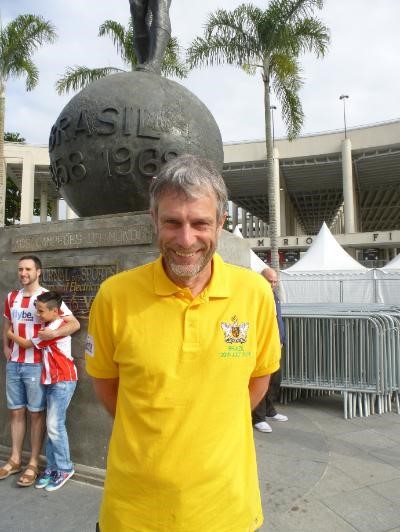
Martin Weiler


/prod01/wlvacuk/media/departments/digital-content-and-communications/images-2024/240328-Varsity-Line-Up-Resized.jpg)
/prod01/wlvacuk/media/departments/digital-content-and-communications/images-18-19/220325-Engineers_teach_thumbail.jpg)
/prod01/wlvacuk/media/departments/digital-content-and-communications/images-18-19/240509-Find-the-Captain-Pencil-Drawing-Resized.jpg)
/prod01/wlvacuk/media/departments/digital-content-and-communications/images-2024/240320-Uzbekistan-Resized.jpg)
/prod01/wlvacuk/media/departments/digital-content-and-communications/images-2024/240229-The-Link-Resized.jpg)